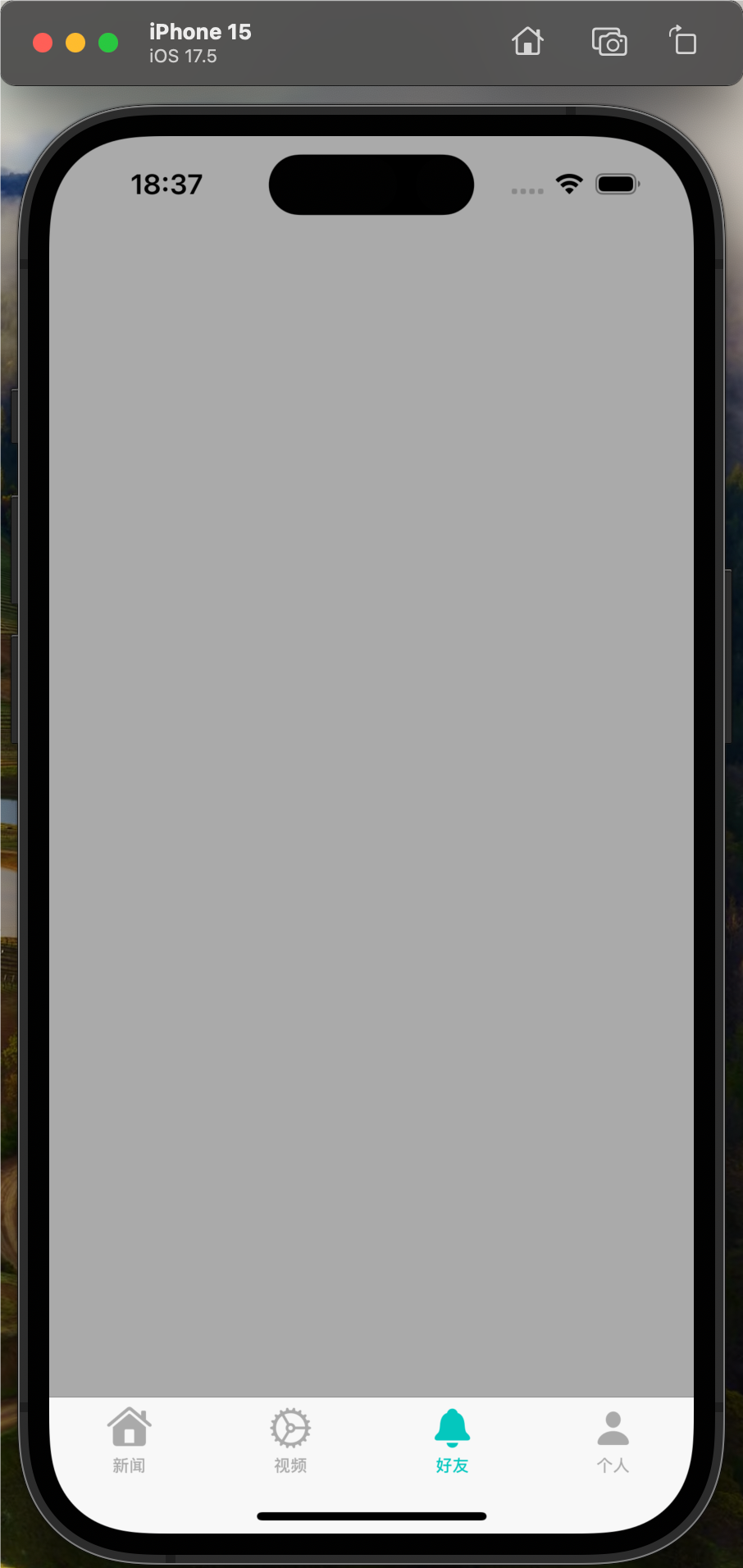第一步:新建一个单视图(single view)的工程,

命名为pickerTest,不要勾选下面两个选项,第一个是新版本里面的,第二个是单元测试,现在用不着。

点击next ->creat之后,打开工具栏:

在下面的控件工具栏中往视图上拖放一个Picker View控件,一个UIButton控件,一个UILable控件,(所有在前端可以看得见的控件都继承自UIView)

修改UIButton的title属性,设置为click 然后点击分栏按钮,为控件连线(这种方式相对于手动去写,要快速很多)。

依次为UILable 和 Picker View 控件添加插座变量,并且为UIButton添加Action

右击picker控件,将 Datesource和delegate连线至File's Owner, 设置它的数据源和代理。

在 cidpViewController.h文件中添加几个变量和遵循 UIPickerViewDelegate 协议,这样就可以用UIPickerViewDelegate里面的几个方法了 。
@interface cidpViewController : UIViewController<UIPickerViewDelegate>

#import <UIKit/UIKit.h>
@interface cidpViewController : UIViewController<UIPickerViewDelegate> {
UILabel *lblTitle;
UIPickerView *picker;
Nsstring* strProvince;
Nsstring* strCity;
NSMutableArray* aProvince;
NSMutableArray* aCity;
NSArray* tempArray;
}
@property (strong, nonatomic) IBOutlet UIPickerView *picker;
@property (strong, nonatomic) IBOutlet UILabel *lblTitle;
- (IBAction)btnClick:(id)sender;
@end
#import "cidpViewController.h"
@implementation cidpViewController
@synthesize picker;
@synthesize lblTitle;
- (void)didReceiveMemoryWarning
{
[super didReceiveMemoryWarning];
// Release any cached data, images, etc that aren't in use.
}
#pragma mark - View lifecycle
- (void)viewDidLoad
{
[super viewDidLoad];
//初始哈5个省份
aProvince = [[NSMutableArray alloc] initWithObjects:@"北京",@"甘肃",@"山西",@"湖北",@"广州", nil];
//初始化5个数组 ,分别初始化为5个省的城市
NSArray* array1 = [NSArray arrayWithObjects:@"海淀",@"昌平",@"朝阳",@"西城",@"丰台", nil];
NSArray* array2 = [NSArray arrayWithObjects:@"兰州",@"白银",@"张掖",@"陇西",@"天水", nil];
NSArray* array3 = [NSArray arrayWithObjects:@"太原",@"大同",@"运城",@"晋城",@"五台山", nil];
NSArray* array4 = [NSArray arrayWithObjects:@"武汉",@"荆州",@"襄阳",@"赣州", nil];
NSArray* array5 = [NSArray arrayWithObjects:@"广州",@"佛山",@"尖沙咀",@"中山", nil];
aCity = [[NSMutableArray alloc] initWithObjects:array1,array2,array3,array4,array5, nil];
//tempArray 用来初始化第二个 ,并且引用一次,避免提前释放,内存出错
tempArray = [array1 retain];
// 用来第一次显示UIlable,负责的话就会显示 null,null
strProvince = [aProvince objectAtIndex:0];
strCity = [tempArray objectAtIndex:0];
[aProvince release];
[aCity release];
}
-(NSInteger)numberOfComponentsInPickerView:(UIPickerView*)pickerView{
//返回2 表示将有两个component(滚轮)
return 2;
}
-(NSInteger)pickerView:(UIPickerView*)pivkerView numberOfRowsInComponent:(NSInteger)component{
if(component == 0){
// 返回省份数组的长度
return [aProvince count];
}else{
//返回省份对应城市数组的长度。
[tempArray count];
}
- (Nsstring *)pickerView:(UIPickerView *)pickerView titleForRow:(NSInteger)row forComponent:(NSInteger)component{
if(component == 0){
//返回对应row 的数组元素。
return [aProvince objectAtIndex:row];
}else{
return [tempArray objectAtIndex:row];
}
}
- (void)pickerView:(UIPickerView *)pickerView didSelectRow:(NSInteger)row inComponent:(NSInteger)component{
if(component == 0){
//返回省份对应的城市数组,
tempArray = [aCity objectAtIndex:row]
[picker selectRow:0 inComponent:1 animated:YES];
[picker reloadComponent:1];
strProvience = [aProvince objectAtIndex:row];
strCity = [tempArray objectAtIndex:0];
}else{
//城市滚轮滚动时,strCity也随着改变。
strCity = [tempArray objectAtIndex:0];
}
lblTitle.text = [[Nsstring alloc] initWithFormat:@"%@,%@",strProvince,strCity,nil];
}
- (void)viewDidUnload
{
[self setLblTitle:nil];
[self setPicker:nil];
[super viewDidUnload];
}
- (void)viewWillAppear:(BOOL)animated
{
[super viewWillAppear:animated];
}
- (void)viewDidAppear:(BOOL)animated
{
[super viewDidAppear:animated];
}
- (void)viewWilldisappear:(BOOL)animated
{
[super viewWilldisappear:animated];
}
- (void)viewDiddisappear:(BOOL)animated
{
[super viewDiddisappear:animated];
}
- (BOOL)shouldAutorotatetoInterfaceOrientation:(UIInterfaceOrientation)interfaceOrientation
{
// Return YES for supported orientations
return (interfaceOrientation != UIInterfaceOrientationPortraitUpsideDown);
}
- (IBAction)btnClick:(id)sender {
lblTitle.text = [[Nsstring alloc] initWithFormat:@"%@,%@",strProvince,strCity,nil];
}
-(void)dealloc{
[aProvince release];
[aCity release];
[lblTitle release];
[strCity release];
[strProvince release];
[picker release];
[super dealloc];
}
@end
@protocol UIPickerViewDataSource<NSObject> @required // returns the number of 'columns' to display. - (NSInteger)numberOfComponentsInPickerView:(UIPickerView *)pickerView; // returns the # of rows in each component.. - (NSInteger)pickerView:(UIPickerView *)pickerView numberOfRowsInComponent:(NSInteger)component; @end
UIPickerViewDelegate协议中的五个方法,非必须实现,
@protocol UIPickerViewDelegate<NSObject> @optional // returns width of column and height of row for each component. - (CGFloat)pickerView:(UIPickerView *)pickerView widthForComponent:(NSInteger)component; - (CGFloat)pickerView:(UIPickerView *)pickerView rowHeightForComponent:(NSInteger)component; // these methods return either a plain UIString, or a view (e.g UILabel) to display the row for the component. // for the view versions, we cache any hidden and thus unused views and pass them back for reuse. // If you return back a different object, the old one will be released. the view will be centered in the row rect - (Nsstring *)pickerView:(UIPickerView *)pickerView titleForRow:(NSInteger)row forComponent:(NSInteger)component; - (UIView *)pickerView:(UIPickerView *)pickerView viewForRow:(NSInteger)row forComponent:(NSInteger)component reusingView:(UIView *)view; - (void)pickerView:(UIPickerView *)pickerView didSelectRow:(NSInteger)row inComponent:(NSInteger)component; @end
转载于:https://www.cnblogs.com/wsq724439564/p/3298979.html

